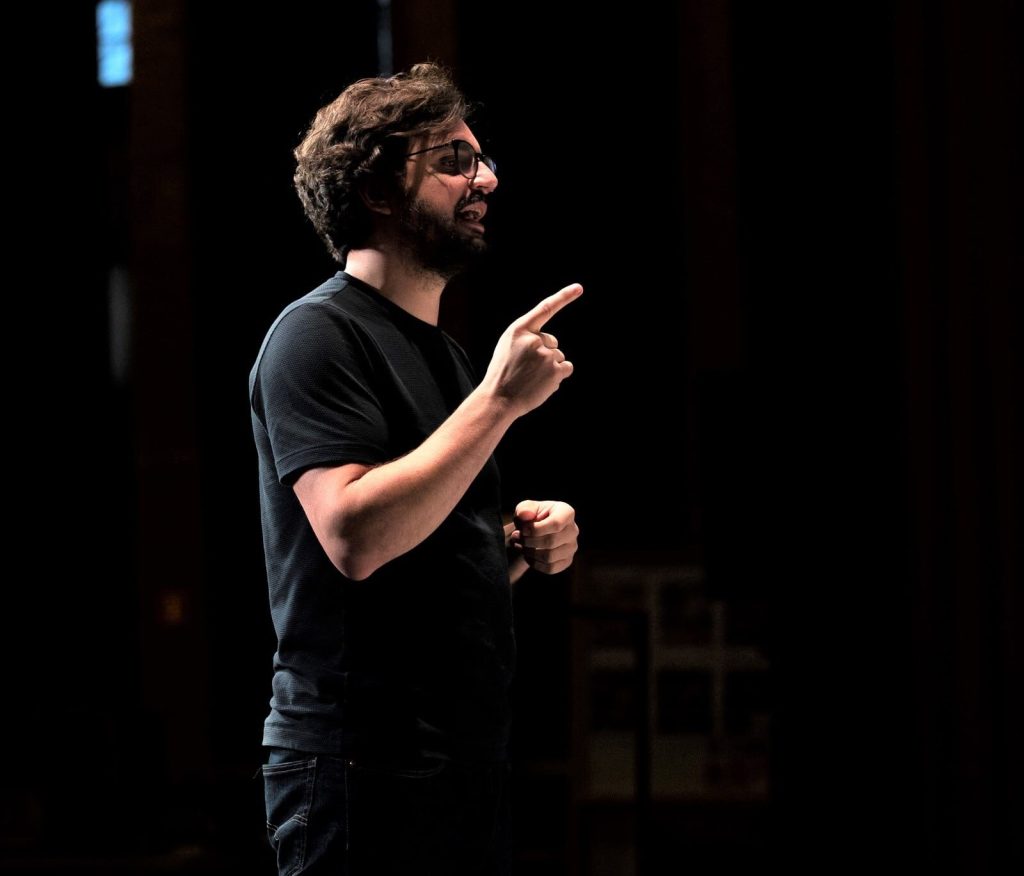Interview with director Julien Chavaz
Roméo et Juliette is a love story between two people from rival families. Director Julien Chavaz turned the opera into a contemporary love story. A story of today! “In my production I play with the question of what you can and cannot show in public.”
How do you bring this time-honored love story to the present day?
“In my experience, Romeo et Juliette is about the constant field of tension between public and private. In directing we play with these different perspectives. One moment you are witnessing everything from the two families, who are fighting each other in public. Then to switch to the intimate perspective of Roméo and Juliette, who meet in secret. The decor is also based on this change of perspective. It’s like looking out the window one minute and surveying the entire city and peeking through a keyhole the next.”
How does this compare to our time where social media makes just about everything public?
‘In the piece I reflect on the question of what you can and cannot show in public. We are used to everyone displaying their entire life on Instagram and Facebook. I occasionally drop a curtain on stage, behind which characters disappear. The audience hears that something is happening, but is not part of it. That arouses curiosity.”
As a director you are known for giving rhythm to an opera. How do you do that in this opera?
First of all, the rhythm must be in balance between the large choral scenes and the intimate solo singing, but also between the musical transitions between the scenes. I use these musical transitions without vocals to tell more than is written on paper. I show the story from a different perspective and have characters come back to create magic and mystery. The audience gets to know the characters in a more intimate way than is possible in the action-oriented storyline. Thanks to the magic and mystery, despite knowing the storyline, the audience continues to ask themselves questions.”
Does this mean that the opera is a recreation of Roméo et Juliette?
‘I make all these choices about rhythm and structure together with the conductor. While we should not lose sight of the fact that the original material of this opera is, of course, already Gounod’s interpretation of Shakespeare’s text. That makes opera art. In my view, art is the constant reassembly and transformation of existing material. An opera is never finished, it is an ongoing process.”
What role do the singers play in this transformation?
In this opera, the body language of the singers is fundamental. An opera can only take the listener on a three-hour journey if the singer’s body is completely connected to the music and lyrics. Opera singers are not ballet dancers, so what matters to me is that singers use their bodies in a personal and abstract way. What I hear, I want to see reflected in the bodies. Only in this way does the energy come across to the public. Otherwise you might as well listen to a CD.”
INFO & TICKETS: operazuid.nl/romeo-juliette
Interview: Manon Berns
